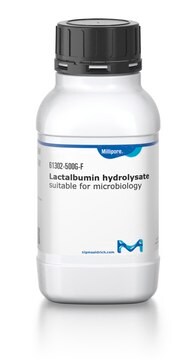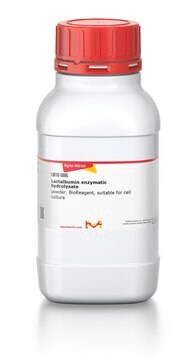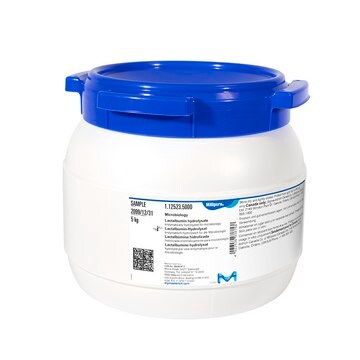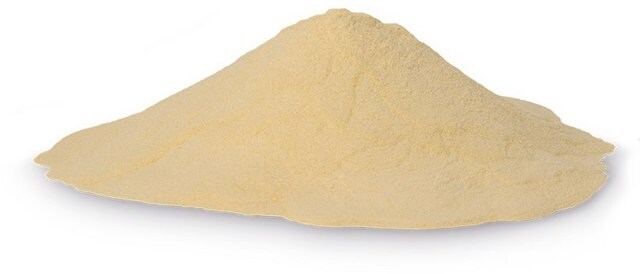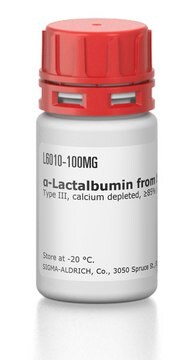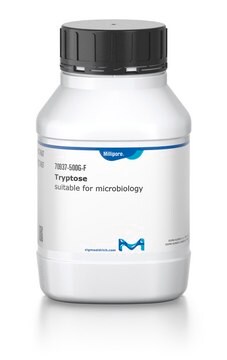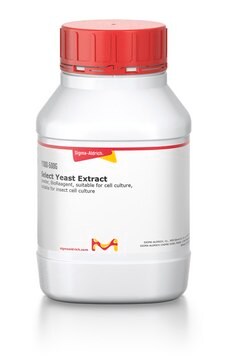61300
Lactalbumin hydrolysate
suitable for microbiology, Nutrient for fermentations and other applications
Synonyme(s) :
Animal origin peptone, hydrolyzed protein, Peptone from lactalbumin
About This Item
Produits recommandés
Source biologique
bovine milk
Niveau de qualité
Forme
powder
Durée de conservation
limited shelf life, expiry date on the label
Composition
total nitrogen (N), ≥11%
Conditions de stockage
dry at room temperature
Résidus de calcination
≤10%
Perte
≤6% loss on drying
pH
6.8±0.5 (25 °C, 2% in H2O)
Solubilité
H2O: 2%, clear to very faintly turbid (light yellow to yellow and light brown-yellow to brown-yellow and light brown to brown)
Application(s)
food and beverages
microbiology
Vous recherchez des produits similaires ? Visite Guide de comparaison des produits
Catégories apparentées
Description générale
Application
In the production of recombinant proteins
As a supplement in mammalian cell culture media
As a substrate for growth of many microbes
Autres remarques
Code de la classe de stockage
11 - Combustible Solids
Classe de danger pour l'eau (WGK)
WGK 3
Point d'éclair (°F)
Not applicable
Point d'éclair (°C)
Not applicable
Équipement de protection individuelle
Eyeshields, Gloves, type N95 (US)
Faites votre choix parmi les versions les plus récentes :
Déjà en possession de ce produit ?
Retrouvez la documentation relative aux produits que vous avez récemment achetés dans la Bibliothèque de documents.
Les clients ont également consulté
Articles
Culture media provides a habitat with suitable nutrients, energy sources, and certain environmental conditions for the growth of microorganisms. The components of the culture media range from simple sugars to peptones, salts, antibiotics, and complex indicators.
Notre équipe de scientifiques dispose d'une expérience dans tous les secteurs de la recherche, notamment en sciences de la vie, science des matériaux, synthèse chimique, chromatographie, analyse et dans de nombreux autres domaines..
Contacter notre Service technique